A Ugandan physician making the world a better place
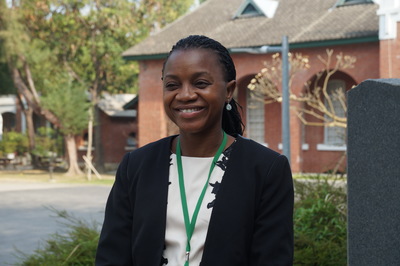
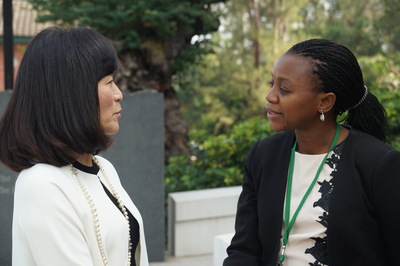
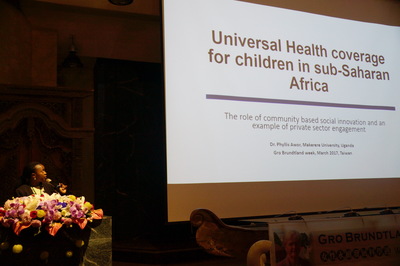
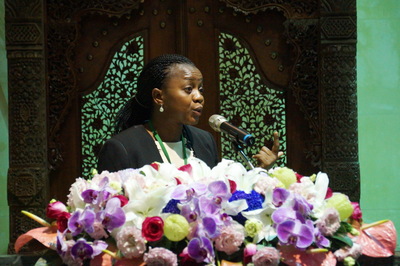
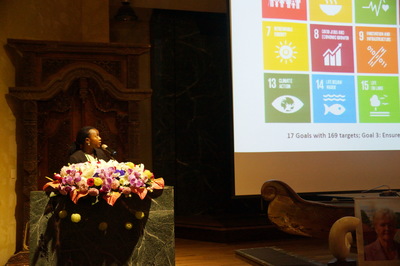
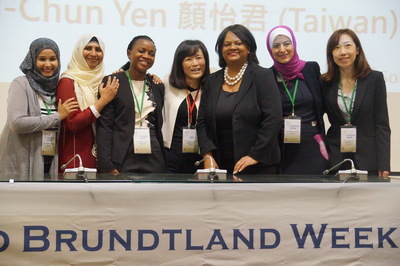
Phyllis Awor, a Ugandan Public Health Physician, currently works at Makerere University School of Public Health, Kampala, Uganda, as a Senior Researcher, with responsibility for maternal and child health related policy analysis, and seeking funding, implementing, monitoring and evaluation of field programs improving quality of care for children in rural communities.
Awor has over 10 years of experience conducting health systems and operational research. For her work, she wins the Gro Brundtland Award this year. “As a female medical doctor and public health specialist from Sub-Saharan Africa (SSA), I have keenly followed, the development of the Gro Brundtland week in Taiwan,” says Awor.
“I am eager to include the African perspective to the discussion on sustainable development in health and to continue local advocacy for the same,” she says.
Engaging the public, particularly children and women, with science is important to Awor. “Science provides great opportunity to make the world a better place. And I am happy to be able to contribute to improve child survival, through my work.”
Through her PhD and post-doctoral research work, she has made distinguish scientific contribution within the field of sustainable and equitable and health systems, focusing on access to health care and quality of care for children in SSA.
She leads an innovative introduction of the WHO/UNICEF supported integrated community case management (iCCM) of malaria, pneumonia and diarrhea strategy within drug shops in Uganda, which earns her research group an award for social innovation in health care delivery from the World Health Organization.
While iCCM is promoted through the public health sector, 50-70% of sick children in Uganda receive care for common childhood illnesses from private sector providers, often drug shops, where the quality of care is poor and drug use can be irrational.
According to Awor, as drug shops remain a major source of care for febrile children in low income countries, there is an urgent need for interventions aimed at improving their quality of care in the management of common c hildhood illnesses.
“We thus introduced the iCCM strategy within private sector drug shops leading to an exponential improvement in the quality of care that children received,” says Awor.
Over 90% of children received appropriate malaria diagnostic testing and treatment, she says. “There was 3 times better management of classified pneumonia at intervention drug shops compared to non-intervention drug shops and thirteen times better management of diarrhoea at intervention drug shops when compared to nonintervention drug shops.”
The success of her research has influenced health care delivery in Uganda, with the Ministry of Health beginning to scale up the approach.
Awor says, “The benefits of community based social innovation can similarly be reaped in other social sectors and the economic sector.”
Talking about the inequity in access to health care in Uganda, Awor says, Both health and development indicators in SSA and Uganda are very poor. Nearly half of people in the region still live in extreme poverty, and they are susceptible to various shocks including conflict and disasters.
Now, Awor is doing more research mainly on maternal and child health policy analysis in SSA and Uganda as well as social innovation activities to improve health.
“I am engaged in identifying and highlighting existing maternal and child health policy and implementation gaps.” Awor also engages in social innovation activities to develop local solutions to protracted health challenges.
Awor says, “With funding from WHO, I lead a Uganda social innovation country hub, based at my local University in order to identify local health innovation, provide a platform for sharing innovation examples and literature, foster social innovation research, and define country priorities for social innovation in health.”
Her PhD degree is from the University of Bergen in Norway and she has a joint Master of Science in International Health from the Universities of London, Copenhagen and Bergen
Awor earned her medical degree from Makerere University in Uganda. “Women face challenges in advancing their career anywhere in the world, just because they are female. In Uganda, there is almost equal enrolment of boys and girls into primary school, but high drop out of girls from school before completion of the primary and secondary level.”
She added that there is affirmative action that encourages female enrolment into the university, for those who are lucky enough to make it through secondary school. After university, there is almost no support for female scientists’ career advancement.
My biggest goal in life is to be the best that I can be in order to contribute to making the world a better place, Awor says.
Awor encourages young scientists who want to research and establish a career in science to “find a mentor! It is important to have someone guide you as you step up and grow in your field. Choose the field that you want to work in, and then just work hard.”
Watch the full speech by Pyllis Awor, please visit https://www.youtube.com/watch?v=u_gGi9o5uIg&feature=youtu.be
Provider:
News Center
Date:
2017-03-14



